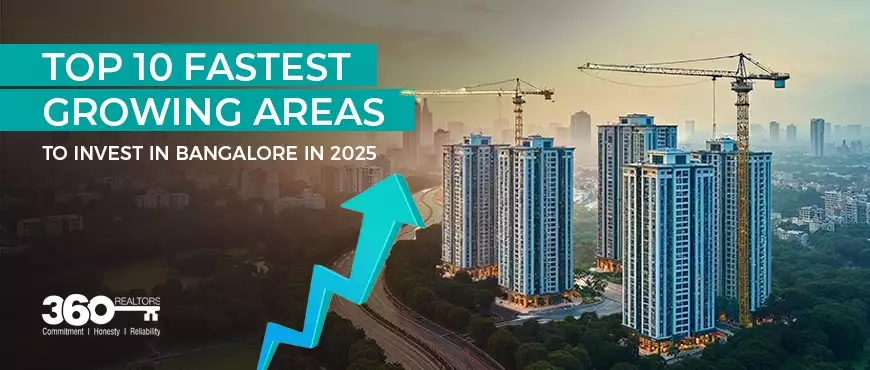The Indian real estate market is expected to reach $180 billion by the year 2020. It is one of the fastest growing sectors in India. The rapid growth in services sectors including IT/ITeS, BFSI & Telecom, and the rising demand from MNCs for office and residential space in Tier 2 cities are driving growth in the Indian real estate sector. Over the next decade, the sector is expected to grow by 30%.
The real estate sector has seen investments worth USD 7 billion in 2017, that are expected to rise to USD 10 billion by 2020, according to the World Investment Report 2016 by the United Nations Conference for Trade & Development. Foreign Direct Investment (FDI) equity inflows in the sector have crossed US$ 24.29 billion in the period April 2000-March 2017.
Here are some major trends in Indian real estate in 2017:
Indian real estate sector will see an increase in global capital flow
India is ranked fourth in developing Asia for FDI inflows as per the World Investment Report 2016 by the United Nations Conference for Trade & Development. The Indian real estate sector saw investments of $32 billion in private equity in 2017. In comparison, the global capital flow into Indian real estate in 2016 stood at just $5.7 billion showcasing the rising interest in the sector.
RERA forced developers to revamp business models
The implementation of Real Estate Regulation & Development Act (RERA), Goods & Services Tax (GST), and the Benami Property Act has helped streamline the Indian real estate sector. It has forced developers to revamp their business models and has increased investors confidence in the sector. Developers have been forced to register their projects and complete their projects on time, or else pay a fine. The implementation of the new reforms will lead to consolidation in the sector in the long term.
Bigger developers like Tata, Godrej, L&T, Bharti, Mahindra, etc., are expected to acquire more projects, and Birla Group is also getting ready for its entry in the real estate sector.
Real estate sector to see consolidation
With the entry of bigger players in the sector, as well as the implementation of the new reforms in the sector will lead to a consolidation in the real estate sector.
The overcrowded real estate sector is expected to become leaner and meaner, with a number of joint developments and joint ventures coming up between landowners and/or small developers with bigger, better-organised players. A number of smaller developers are being bought out by larger players. A number of smaller developers are cashing in their land banks by selling them to bigger players.
PE investors are expected to infuse the sector with more equity over the next few years. Consolidation phase is expected to remain for the next five years in the country.
Affordable housing sector to get a boost
The affordable housing sector in India is getting a boost with the launch of the ‘Pradhan Mantri Awas Yogna’ or ‘Affordable housing for all by 2022’. Under the scheme, over one crore houses are to be built in rural India by 2019, and this sector is expected to get cheaper financing options and re-financing of housing loans by National Housing Banks (NHBs) which can give a further boost to the sector.
Rise of co-working spaces
Co-working spaces, which allow cost sharing and affordable office spaces for people, are expected to see a further rise in 2017. The sector is expected to see a boom, as they are more cost-effective, boost productivity, and lead to more innovation in new companies. With the number of start-ups on the rise in India, the demand for co-working spaces is expected to see a further increase.
REIT
The first REIT listing will be seen in India in the next few months, where prominent private equity funds such as Blackstone will be first to invest. REIT’s will see a number of institutional and smaller investors, which is expected to provide regular dividends at relatively low risk.
Around 229 million sq. ft. of office space is currently REIT-compliant. Even if 50% of this space is listed in the next few years, there are a total of $18.5 billion REIT listings possible. REIT will help buyers benefit from real estate price appreciation without the hassles associated with buying and maintaining properties.






